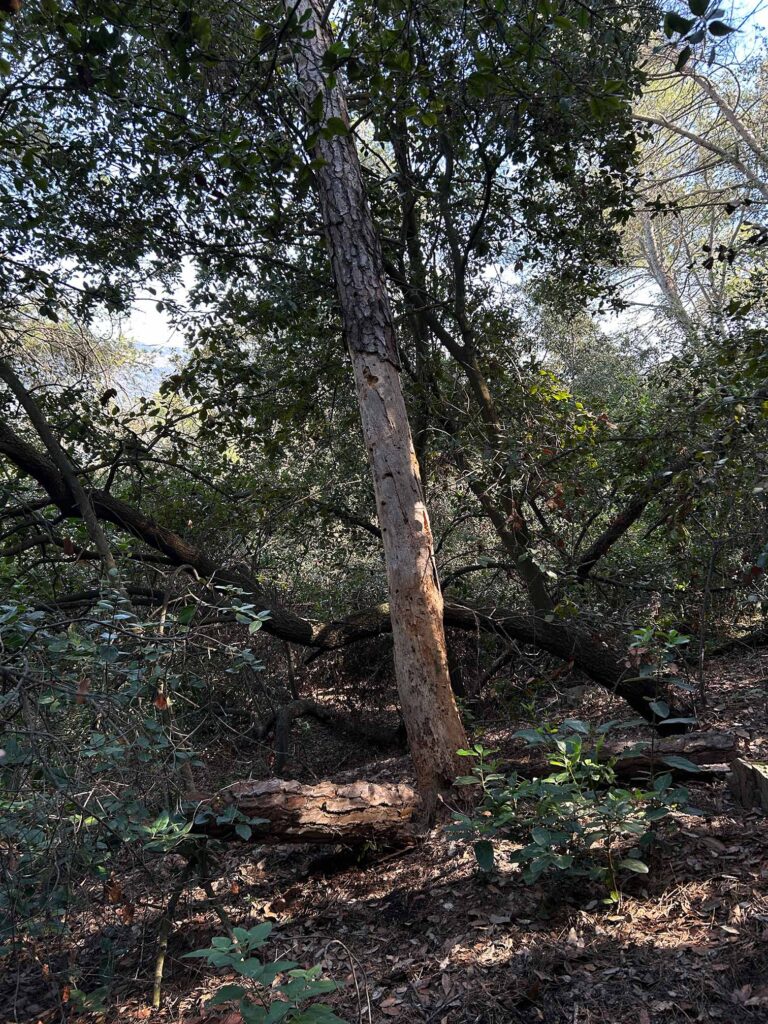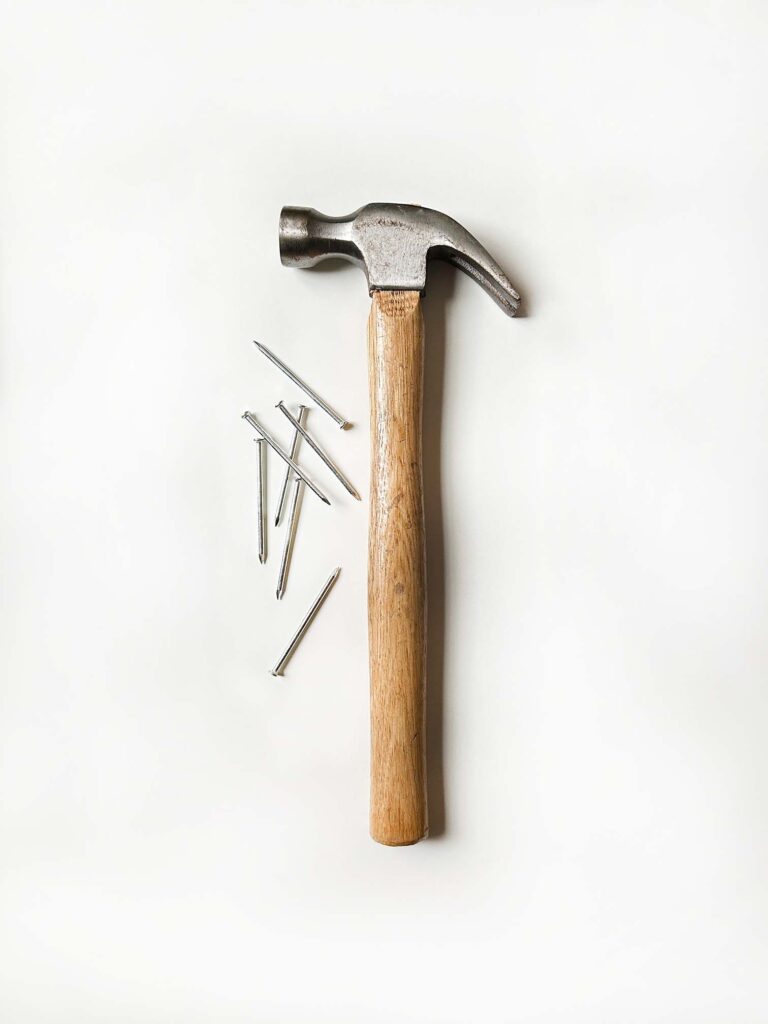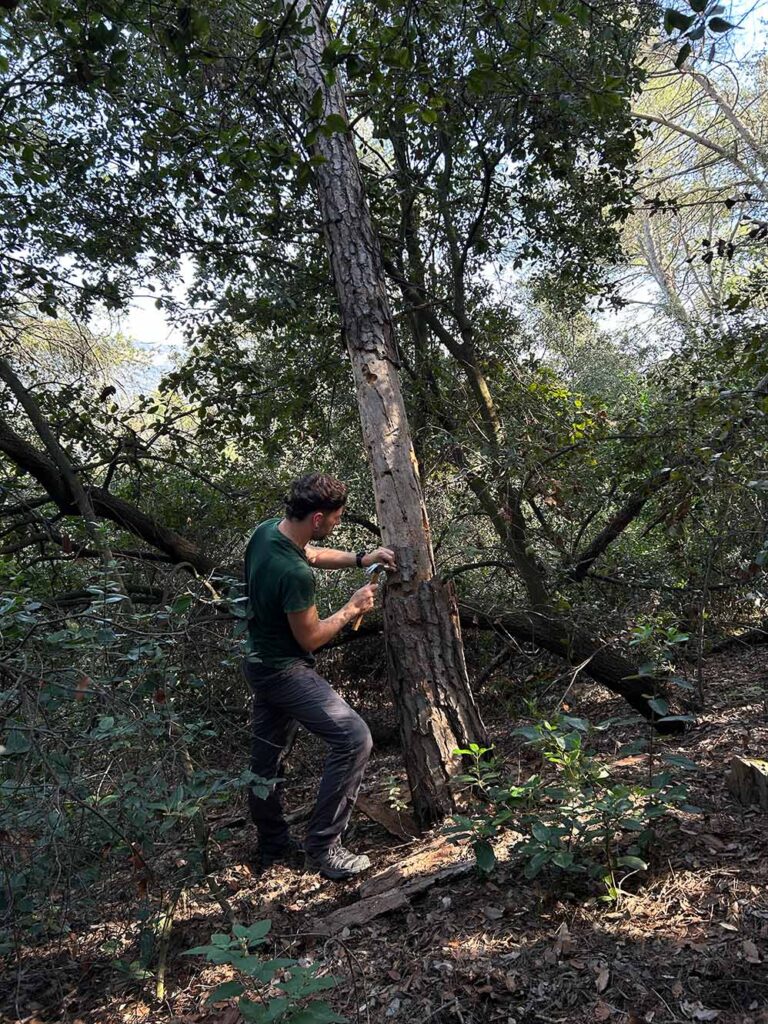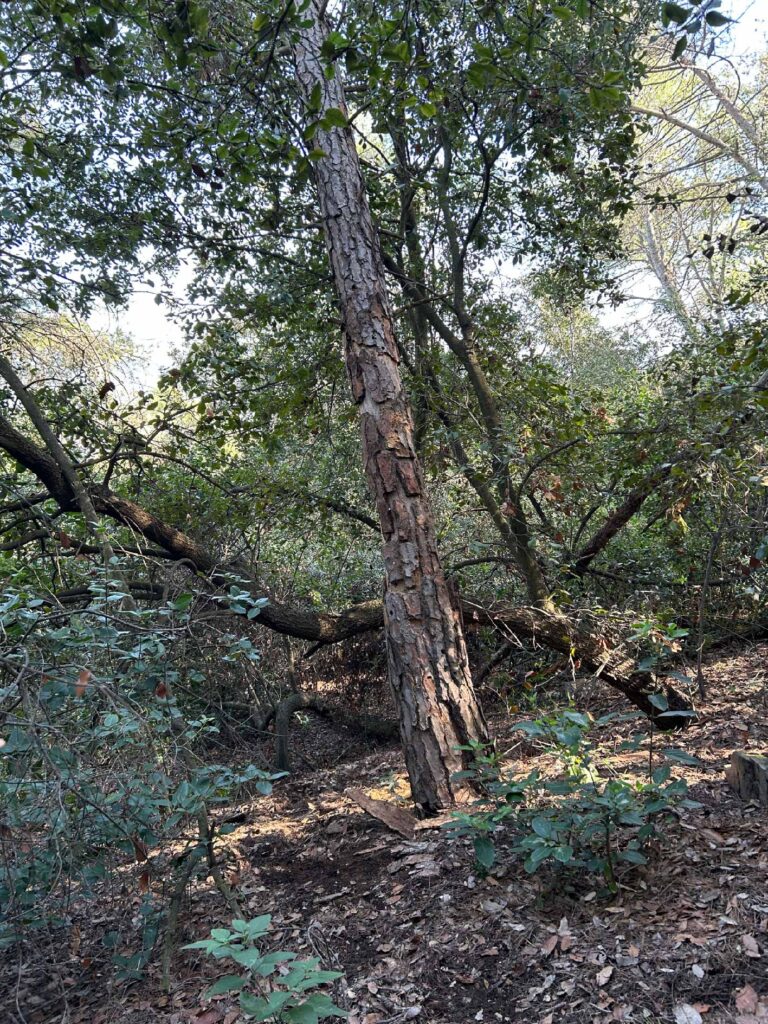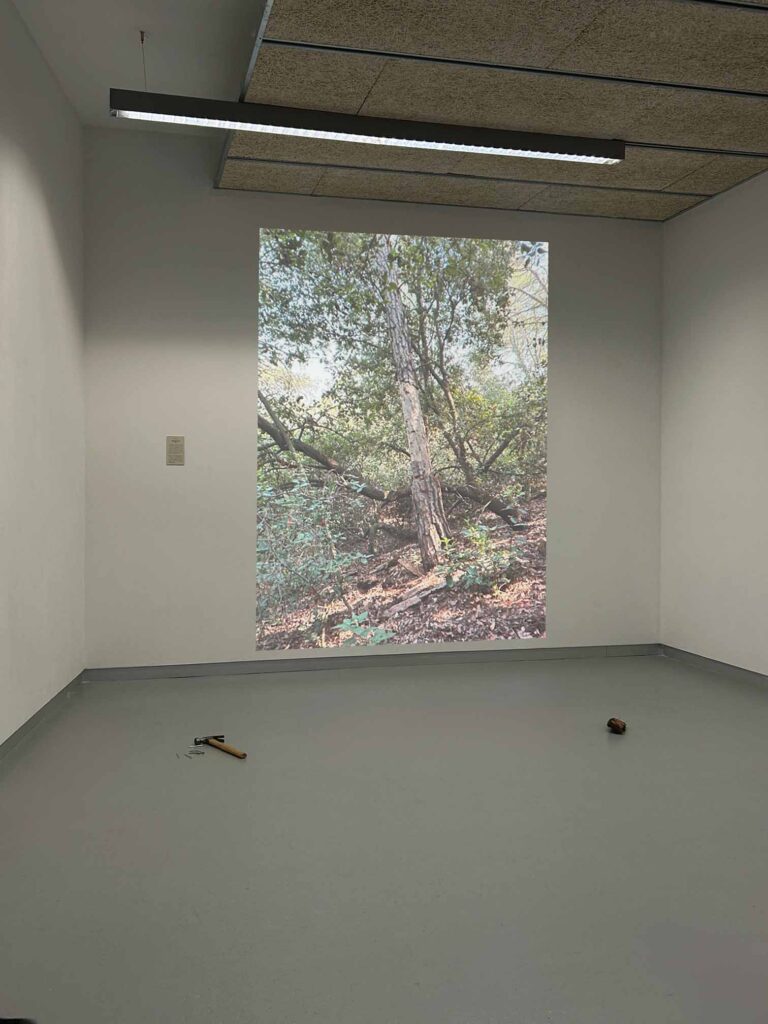
Mutualisme
The relationship between human beings and nature has been a constant throughout the history of humanity, an intersection that has evolved significantly over time. Since the dawn of civilization, people have depended on natural resources for survival and development.
Mutualisme explores this complex intersection through the act of embedding a steel nail into the bark of a tree. The nail (an artificial element and a symbol of human intervention) pierces the skin of this living being, which represents the natural element.
What at first glance might be interpreted as an act of repair or care is in fact revealed as a manifestation of human egocentrism. The paradox is clear: although the bark constitutes an essential element for the tree’s life, the way in which it is ‘returned’ invalidates it completely.
That gesture of restitution becomes a wound. The bark, instead of being reintegrated into a vital cycle, is pierced and marked by a foreign element—unequivocally human. Even if the nails were removed, the hole would remain as an indelible trace, a testimony to the failed attempt to fix what cannot be fixed.
In this way, the action that seems like care reveals its ironic nature: far from restoring, it forever establishes the impossibility of true repair.
